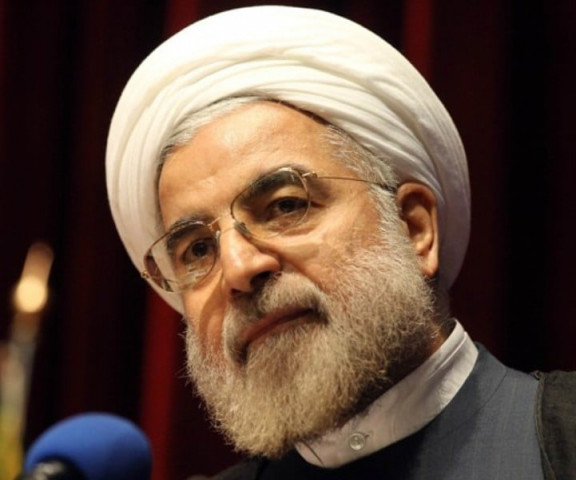Winds of change in Iran
Pakistan would benefit if Iran can move out of its international isolation.

File photo of Hassan Rowhani. PHOTO: AFP/FILE
The key question for the US and other nations will be the extent to which President Rowhani can ease concerns regarding Iran’s nuclear programme and if he succeeds in doing so, the foreign relations dynamics of the world would change considerably. This would be immensely significant with a particular impact on the Middle East, where the bitterness between Iran and Israel adds to tensions at many levels. President Rowhani, who is backed by Iran’s Supreme Leader Ayatollah Ali Khamenei, himself seen as a reformist, has already said that he seeks less acrimony with other nations. Pakistan, too, would benefit if Iran can move out of its international isolation, especially given its recent endeavours to cooperate more closely with its neighbour — a move that has brought wrath from Washington.
Beyond the international sphere, too, it will need to be seen what impact President Rowhani has within his own country. Politics in Iran is dominated by a tussle between reformists and those pursuing a more orthodox school of thought. Women in the country, in particular, will be hoping that the 64-year-old president can deliver on his promise to grant them more rights and also take Iran towards change. Developments will then be closely watched as what is widely expected to be a new order, begins to unfold in a country that has been pushed to the sidelines of the global community in recent years.
Published in The Express Tribune, August 7th, 2013.
Like Opinion & Editorial on Facebook, follow @ETOpEd on Twitter to receive all updates on all our daily pieces.














COMMENTS
Comments are moderated and generally will be posted if they are on-topic and not abusive.
For more information, please see our Comments FAQ